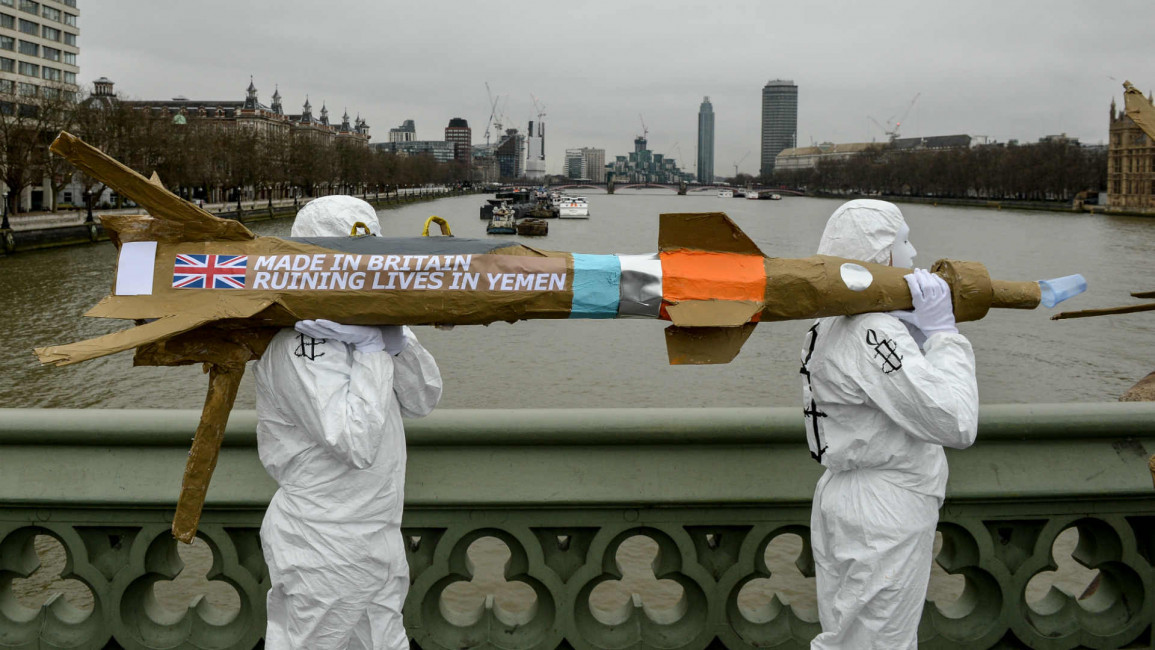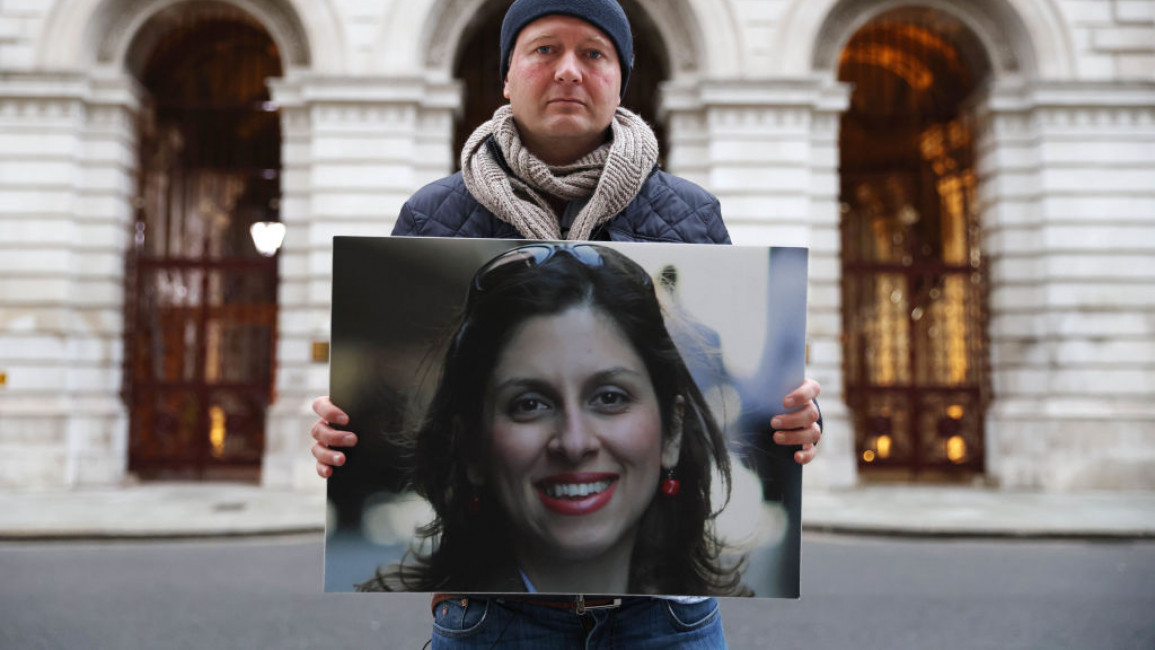
Boris Johnson's legacy in the Middle East

Boris Johnson’s stint as British prime minister was characterised by controversy, lies, and scandal before he announced he would resign in early July.
Domestically, he oversaw huge challenges, including Britain’s exit from Europe and the Covid-19 pandemic.
On the international scene, the UK tilted towards a harder line on China, the Indo-Pacific, and, most recently, Ukraine, where Johnson became a key ally of Kyiv following the Russian invasion.
But what about the Middle East?
Johnson became prime minister after serving as foreign secretary for two years, during which time his tenure was defined by blunders in the region.
"After winning the December 2019 General Election, one of Johnson's immediate priorities was to harden Britain's pro-Israel stance"
In 2017, he caused widespread controversy, including a strong rebuke from Downing Street, when saying that Libya’s coastal city of Sirte could become the new Dubai once they “clear the dead bodies away".
At the end of that year, meanwhile, remarks he made while condemning Iran’s detention of the British-Iranian dual-national Nazanin Zaghari-Ratcliffe further hurt her case.
While PM, his policies in the region largely focused on expanding trade with traditional Middle East partners as part of a post-Brexit bid for influence under the guise of ‘Global Britain’.
But there were also key areas of policy change which could have a lasting impact in the region.
Cosying up to Israel
After winning the December 2019 General Election, one of Johnson’s immediate priorities was to harden Britain’s pro-Israel stance. After all, his then-rival, Labour leader Jeremy Corbyn, promoted policies heavily supportive of Palestinian independence and rights.
Johnson’s government has since tried to cement narratives supportive of Israel within the parliament and British society.
Just days after winning the 2019 general election, Johnson’s government announced it would pass legislation banning public bodies from boycotting Israel. Such hasty timing suggested this was a key priority for the Conservatives given the stigma over Corbyn’s pro-Palestinian beliefs.
In November 2021, Johnson’s government then announced it would list the Gaza-based Hamas group as a terrorist organisation in its entirety in Britain, after having previously only proscribed its military wing.
|
|
According to the law, "members of Hamas or those who invite support for the group could be jailed for up to 14 years." The move was justified on the grounds of fighting terrorism in Britain.
Moreover, Johnson created further distance with the Palestinian leadership and moved towards Israel by displaying his opposition to the pending International Criminal Court (ICC) investigation into Israeli war crimes following the May 2021 war on Gaza.
Although he has continued the policies of his Conservative predecessors David Cameron and Theresa May, which included supporting Israel while voicing support for a Palestinian state, Johnson has evidently bolstered London’s stance towards Tel Aviv.
Leveraging the Gulf
Johnson’s government had also tried to ensure that it could maintain ties with the Arab Gulf states, with whom Britain had traditional relations. This had extended further because of Brexit to compensate for the impending loss of EU trade.
Arms sales to Britain’s largest clients in the region, namely Saudi Arabia and the United Arab Emirates (UAE), increased as a result.
Despite a backlash over this and increased involvement in Yemen’s war, in which Riyadh and Abu Dhabi were the leading partners, Johnson’s government was determined to continue weapons sales to London’s Gulf allies.
"Arms sales to Britain's largest clients in the region, namely Saudi Arabia and the United Arab Emirates, increased under Johnson as Britain sought to shore-up post-Brexit allies"
Crucially, bilateral trade volume between the UK and Gulf states markedly increased from 2016 to 2020, making London less willing to criticise the latter’s actions as this could have potentially jeopardised new trade deals.
In June 2019, a Court of Appeal ruling that weapons sales to Saudi Arabia were unlawful forced London to temporarily halt arms sales to Riyadh.
Yet just a few months later, Johnson’s then-International Trade Secretary Liz Truss admitted to “accidentally” selling weapons to Saudi Arabia, and in 2020 weapons sales fully resumed after London claimed only “isolated incidents” of civilian deaths occurred in Yemen.
Although US President Joe Biden promised to curtail weapons sales to Saudi Arabia in February 2021 after becoming America’s president, Johnson’s government still insisted on continuing weapons sales to the Saudi-led coalition.
This was despite the UK and the US having similar policies of backing the coalition and the UK having adopted a more ‘Atlantic-oriented’ foreign policy towards Washington, rather than with the EU.
Moreover, Britain aims to use ties with the Gulf region to further its post-Brexit geopolitical endgame. For example, despite questions within the UK parliament over Bahrain’s human rights policies against detainees, Johnson’s government has often ignored these concerns while continuing to support the ruling family in Manama.
After all, Britain has a key naval base in Bahrain, which can enable it to deploy its military personnel easily in the Middle East and thus project military influence into the region.
Britain also established a military base in Oman in 2019, and its ties with Muscat have expanded further after Britain implemented the “Future Soldier” program last year, which aims to implement military reforms such as advanced technology, relying more on cyber-security and increasing personnel deployment globally.
Just days before Johnson’s resignation, the UK Department for International Trade announced it was forging a free trade deal with the GCC states.
Not only would this help bolster trade relations between London and the GCC, but it also aims to help expand Britain’s trade routes further into the Indo-Pacific, enabling Britain to globalise its trade routes.
|
|
Backlash over Iran comments
One of the most controversial aspects of Johnson’s legacy was his management of Nazanin Zaghari-Ratcliffe’s case after she was detained in Iran in 2016 on spying charges.
As foreign secretary, Johnson was heavily criticised when, in 2017, he claimed at a meeting with the Foreign Affairs Select Committee that Zaghari-Ratcliffe had been "teaching people journalism" in Iran, ignoring the fact that she was simply visiting her parents.
Although Johnson later admitted his comments were a “mistake,” three days later, his words were cited as “proof” before an Iranian court that Zaghari-Ratcliffe had engaged in “propaganda against the regime”.
Although she was finally freed in March 2022, criticisms from Zaghari-Ratcliffe, her husband – who staged a hunger strike outside the Foreign Office in 2021 - and ministers, revealed the impact of Johnson’s words.
"I don't agree with Richard [her husband] on thanking the foreign secretary, because I have seen five foreign secretaries over the course of the six years… how many foreign secretaries does it take for someone to come home, five?" she said.
“I think the answer is clear. I cannot be happier than this that I’m here. But also, this should have happened six years ago.”
Moreover, Zaghari-Ratcliffe also questioned why it took the prime minister so long to secure her release. Although Johnson seemed “shocked” over her ordeal, he did not specifically apologise to Zaghari-Ratcliffe.
Clearly, even though he was the foreign secretary, it was harmful to Johnson’s reputation, which has declined steadily since and became a leading factor in his resignation as a result of new scandals.
"Britain will likely continue to deepen its post-Brexit relations with its traditional Middle Eastern partners, even when Johnson resigns"
Britain's future in the Middle East
With regards to working with the US, Johnson has taken a largely adaptive position in Middle Eastern affairs. When Donald Trump was US president, Johnson was keen to shift towards Washington’s position, such as taking a tougher stance on Iran and supporting a new nuclear deal with Trump.
However, Johnson found himself somewhat isolated in terms of engagement with the Gulf and other Middle Eastern states under Biden, who did not echo Trump’s support for him.
Given that there is a Conservative leadership contest and developing stronger ties with the EU does not seem like an immediate possibility under the current candidates, Britain will likely continue to deepen its post-Brexit relations with its traditional Middle Eastern partners, even when Johnson resigns.
Jonathan Fenton-Harvey is a journalist and researcher who focuses on conflict, geopolitics, and humanitarian issues in the Middle East and North Africa
Follow him on Twitter: @jfentonharvey




